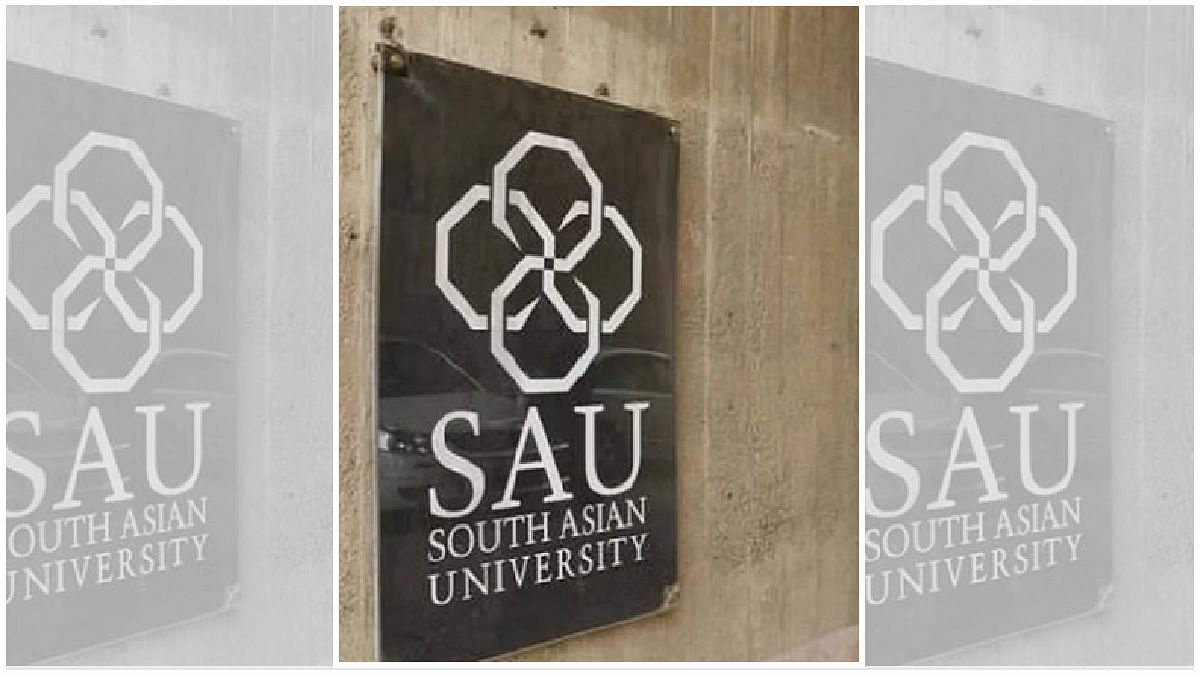New Delhi: In an open letter to the administration of the South Asian University (SAU), 83 professors from universities across Bangladesh have expressed concern over its decision to suspend four of its professors and demanded that they be reinstated.
On 16 June, four professors of the SAU in Delhi were suspended over allegations of misconduct. They had been accused by the university administration of “running a Marxist study circle and inciting student protest on campus”.
The letter — a copy of which is with ThePrint — questioned the administrative process that was followed prior to placing the professors under suspension.
The chain of events, it said, “demonstrates a lack of transparency and accountability prevalent in a leading higher education institution in our corner of the world”.
“Such despotic practices can only breed in an already non-democratic environment, and we, who have been observing recent political trends in South Asia and, in particular, India, find it no surprise that this has happened,” read the letter.
Stating that they condemned the actions of the university and would like to bring these issues to the attention of the South Asian Association for Regional Cooperation (SAARC), the academics said these “actions show these officials and administrators have no concern for academic practices or integrity, and neither research nor teaching is their priority”.
Asked to comment on the open letter, the SAU said in a written response to ThePrint Friday that it was “not aware of any such letter”. On the suspension of Bangladeshi professors, the university added, “The suspension of the faculty members is as per the SAARC Intergovernmental Agreement, Rules, Regulations and Bye Laws, including Regulations 17.8**, 38 and Bye Laws on the Code of Conduct for Faculty Members.”
The South Asian University, with its campus in New Delhi, is an international university sponsored by the eight SAARC member states, namely Afghanistan, Bangladesh, Bhutan, India, Maldives, Nepal, Pakistan, and Sri Lanka. Its degrees are accredited in and recognized by the University Grants Commission (UGC) and its equivalents in all the eight SAARC countries. The university offers graduate and doctoral level courses.
Signatories of the letter include Kazi Farid, Professor (Rural Sociology) at Bangladesh Agricultural University, Mohammad Tanzimuddin Khan, Professor (International Relations) at the University of Dhaka, Md Sazzad Hossain Zahid, Associate Professor (English) at the Islamic University in Kushtia, Fahmidul Haq, Visiting Professor (Arts) at the Bard College in the US and Priyanka Kundu, Lecturer (Department of Mass Communication and Journalism) at Bangladesh University of Professionals.
In November 2022, classes were halted at the university on account of student protests over a host of issues including the demand for higher stipends and fair representation in redressal committees. When the new academic session began last August, the SAU reduced the monthly stipend for its Master’s programmes to Rs 4,000 from Rs 5,000.
University officials had told ThePrint last year that the stipend was reinstated after protests began in October, but students sought a further increase. On 4 November, the university brought in police to help disperse the protest. Two students were subsequently expelled and three placed under suspension. Students then began an indefinite hunger strike.
As some students began to fall ill, the university administration reached out to the diplomatic missions of the SAARC countries. The protest was eventually called off in December during the winter vacation.
Also Read: ‘Damaged your reputation’ — Over 500 academics write to IISc after it cancels talk on UAPA
‘Concerned about mental wellbeing of students’
In the letter, the academics also raised concerns over the lack of initiatives taken by the university to ensure mental and physical well being of its students. They mentioned the case of Ripon Ahmed Chowdhury, a Bangladeshi student from the Computer Science department, who they said died by suicide upon his return home to Bangladesh last year.
“During the winter break Ripon Ahmed Chowdhury, a Bangladeshi student from Computer Science committed suicide upon his return home to Bangladesh. These incidents raise serious concerns about the SAU administration’s role in ensuring the physical and mental wellbeing of the students from both India and other countries,” the letter read.
Responding to a query by ThePrint in this regard, the SAU said in its written response, “The University had nothing to do with the sad demise of the student. The University statutorily takes due care of all its students through the office of the Dean of Students. The services of a professional counsellor are also available to any requiring students.”
The professors from Bangladesh also wrote that SAU, which was built with the aim of promoting academia in the SAARC had now become “a source of dismay and anxiety in regional academia”.
In their letter, they wrote, “The incidents that gradually unfolded from October 2022 onward have exposed how academic freedom has been rendered weak and powerless in the face of regional autocratic governments and fascist, often populist, ideologues.”
(Edited by Amrtansh Arora)
Also Read: Student-led group at JNU aims to change perception around defence studies — ‘not about politics’

